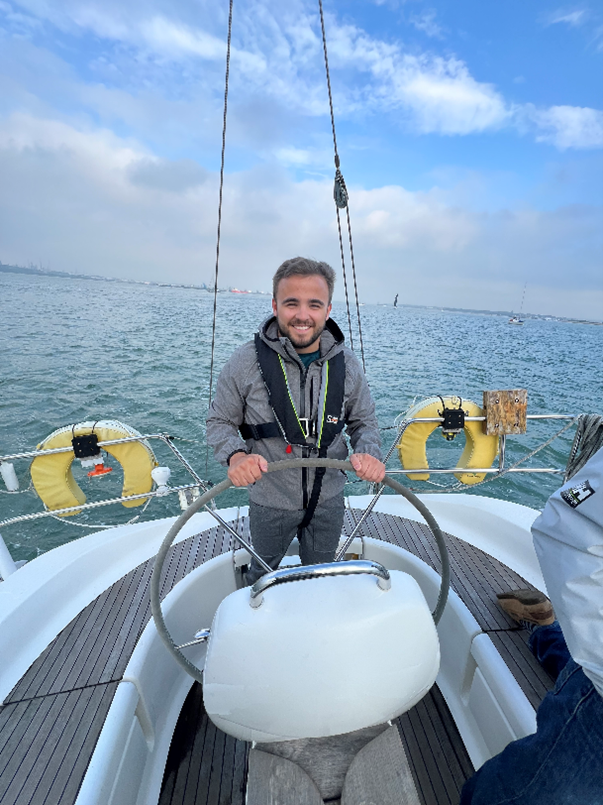I have always had a passion for aerospace and pursued general engineering at the University of Glasgow, with a focus on aerospace systems engineering. That said, I also have a deep appreciation for machines in general, including ships. I've visited a couple of dockyards, including Faslane, and I absolutely enjoy being around them. Whether it’s machines in water, air, or on land, I find them all incredibly impressive. For me, it’s more about the engineering and mechanics rather than the specific type of machine.
Joining BMT and the Graduate Programme
After graduating with a Bachelor of Science, I joined BMT. The diverse projects and global presence really appealed to me as well as the graduate programme on offer. This started with a structured set of modules focused on business and interpersonal skills before progressing to my area, which centred on reliability, obsolescence, safety, and environment. This focus later evolved into asset performance management (APM), where I’m still working today.
The graduate scheme, which took about two years to complete, became more organised after the transition to APM, and I even had the opportunity to help shape the structure for future graduates.
Next step in my career
I was recently promoted and will be stepping into a new role that provides flexibility to work across different areas of the business. Currently, I manage the risks associated with systems or components becoming outdated. Everything becomes obsolete eventually, so having a plan in place is crucial, especially for complex platforms like submarines. The goal is to resolve these issues without causing major downtime or incurring costly redesigns. I regularly engage with system engineers and stakeholders to gather updates and ensure they’re aware of potential risks.
Sometimes it can be challenging to get their buy-in, as not everyone prioritises obsolescence. However, addressing these issues is essential to prevent larger problems down the line. If obsolescence isn’t managed effectively, it can lead to reduced functionality or, in severe cases, complete platform inoperability. This is particularly critical in the defence sector, where equipment is both expensive and complex to redesign.
I am hoping that my new position will allow me to gain more experience in reliability engineering -an area I haven’t concentrated on as much compared to obsolescence management.
The most rewarding aspects of my role
What I enjoy most is seeing a project through from start to finish. Initially, the technical details can be overwhelming, but as I engage with stakeholders, everything starts to come together. The most rewarding part is delivering a final report that the customer accepts and values. The satisfaction of consolidating all the information to meet the customer’s needs makes the work fulfilling for me.
One of the most interesting projects I’ve worked on involved presenting a paper on horizon scanning at the International Institute of Obsolescence Management (iiom) conference. This project focused on obsolescence management but with a forward-looking approach using horizon scanning. It involved analysing emerging technologies like AI, which is undergoing rapid development, and considering their future impact on current platforms. By anticipating when these technologies might achieve market dominance, businesses can prepare for the obsolescence of existing systems. This proactive strategy helps mitigate the risks of sudden technological shifts, making it an exciting and forward-thinking piece of work.
Advice for future budding engineers
If I had to offer advice, I’d say to take advantage of every opportunity around you. With a growing focus on STEM, there are numerous career nights and events to explore. During my time at university, I attended several of these, and I found them immensely helpful. These events allow you to discover what different businesses are about, understand what might interest you, and also identify what may not align with your passions.
Career events provide a chance to clarify what you enjoy without having to search for it all on your own. They are an excellent way to explore various industries and find what suits you. For anyone interested in niche fields like obsolescence management or asset performance management - areas not typically covered in undergraduate degrees - these events are particularly valuable.
Find out about our graduate programme here.





